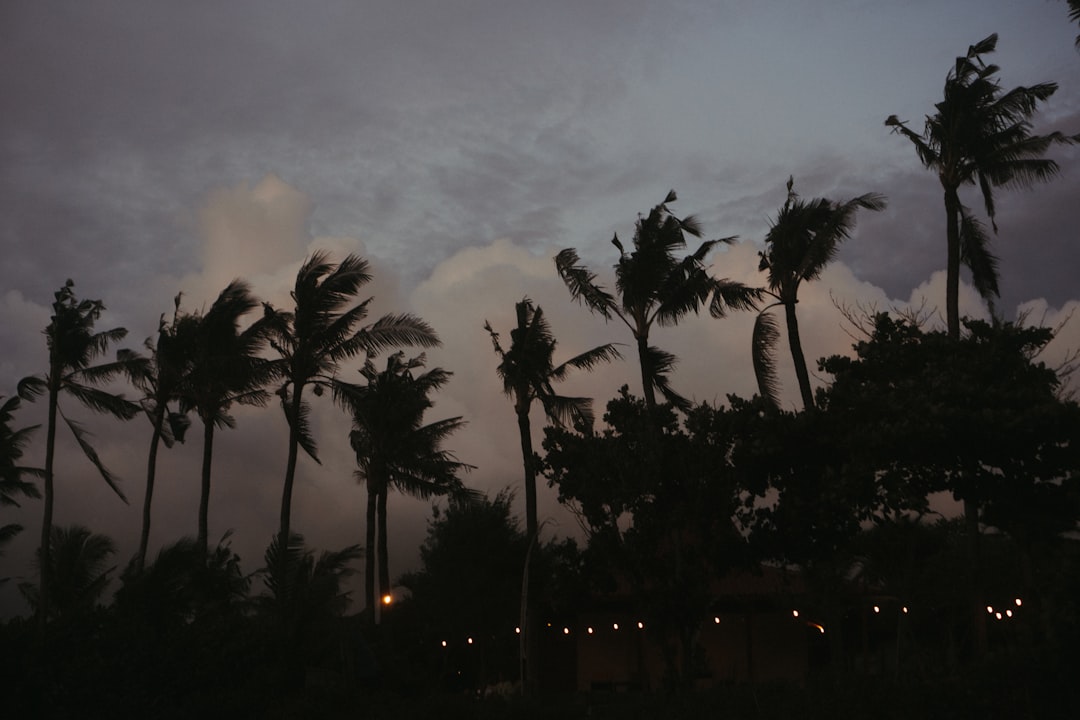Avoiding the “Second Disaster” of Unwanted Donations
International Journal of Mass Emergencies & Disasters2022
The outpouring of charitable acts following a disaster can reveal humanity at its best. But this can also take the form of spontaneous acts of generosity that flood supply chains with unwanted or low-priority goods that slow down the distribution of supplies most needed by disaster survivors. The challenges of sorting and distributing donations as well as disposing of inappropriate donations can be so bad that it is sometimes referred to as the disaster that follows the disaster. To understand how to prevent this, we interviewed donors, donation collectors, and disaster relief distributors following Hurricane Sandy in 2012 and two tornadoes that struck near Oklahoma City in 2013.
View more
Evaluation of Hurricane Evacuation Order Plans: Hurricane Florence Case Study
Natural Hazards Review2022
This paper introduces an approach to evaluate the performance of a previously implemented or proposed hurricane evacuation plan that describes where and when official evacuation orders are issued. The approach involves use of the new integrated scenario-based evacuation (ISE) decision support tool to define a best track evacuation plan as a reference point and measure the performance of other plans in relation to that according to their ability to meet multiple stated objectives: minimizing risk to the population, travel time, and time people are away from their homes. Using North Carolina in Hurricane Florence (2018) as a case study, we demonstrate the process by evaluating performance of both the actual set of orders as executed and the orders that would have been recommended if the new ISE decision support tool had been used during the event.
View more
The Point of No Return: Adaptation Strategies in Disaster Donation Supply Chains
Natural Hazards Review2022
In the aftermath of disasters, material convergence (the influx of material donations) can cause extreme negative impacts and has been described as a second disaster. Donations that are nonpriority or low-priority goods, or in excess of need, can have negative impacts on transportation into and storage within the affected area. For routine supply chains, successful supply access partially lies in the ability to adapt to changing circumstances. This paper draws on data collected after Hurricane Sandy in 2012 and two tornadoes outside of Oklahoma City in May 2013. Interviews were conducted with individual actors in emergent donation supply chains to understand how they made and understood the effectiveness of their efforts and later coded for how central adaptability is viewed for achieving this success.
View more
COVID-19: Impacts on Delawareans Living with HIV
University of Delaware Disaster Research CenterTricia Wachtendorf, Christopher Tharp and Nancy Rios-Contreras
2021
In January and February 2021, researchers from the University of Delaware’s Disaster Research Center (DRC) conducted a study of the impacts of COVID-19 on Delawareans living with HIV. When interviews began, over 60,000 Delawareans had tested positive for COVID-19 since the start of the pandemic, and over 1100 people had died from COVID-related causes.
View more
Hurricane evacuation beliefs and behaviour of inland vs. coastal populations
Environmental Hazards2021
Although hurricanes can cause severe hazard effects well inland, little is known about the evacuation behaviour of inland populations compared to coastal populations. Using survey data collected in the United States after Hurricanes Florence (2018), Michael (2018), Barry (2019), and Dorian (2019), we investigate differences between coastal and inland populations in evacuation decisions and timing, and their causes. The data indicate that coastal populations evacuated at a higher rate than their inland counterparts (those not in coastal counties) in every hurricane studied. Chi-square tests identified differences in characteristics of coastal and inland populations, and a multiple logistic regression identified variables associated with evacuation.
View more
Sociology of disasters
Handbook of Environmental Sociology2021
This chapter focuses on the contributions of sociologists who study the root causes and social consequences of everyday emergencies, disasters, and large-scale catastrophes. It defines key terms and concepts, offers a brief history and overview of the field, and explains why sociologists study disasters. It also describes what research has revealed regarding human and organizational behavior during times of collective upheaval through offering a review of available research regarding three enduring areas of study in disaster—convergence behavior, panic and prosocial behavior, and crime and conflict. This chapter demonstrates how disaster risk is patterned in ways that reflect pre-existing social and economic inequalities.
View more
Ballistic Missile Threat Inbound: When Human Error is Really (Still) a Systems Error
Natural Hazards CenterTricia Wachtendorf and James Kendra
2018
It might be understandable to feel a degree of empathy for the Hawaii Emergency Management Agency (HI-EMA) employee who sent a false ballistic missile alert on January 13—many of us have felt the sinking feeling after hitting reply all on an email meant for one person.
View more
Trans-System Social Ruptures: Exploring Issues of Vulnerability and Resiliency†
Wiley Online LibraryTricia Wachtendorf
2009
This essay takes up a recently introduced term, trans-system social ruptures (TSSRs), and demonstrates its applicability to understanding ruptures to transnational systems. Using the relationship between Canada and the United States as a focus point, the article differentiates national from transnational system social ruptures. The article goes on to explore national and transnational system vulnerability to and resiliency from TSSRs. The distinction between the two types of TSSRs poses empirical, operational, and policy implications. The objective and subjective emergence of TSSRs as a social problem has much to offer to our understanding of disaster events and future crises. The article closes with several recommendations for theoretical development.
View more













